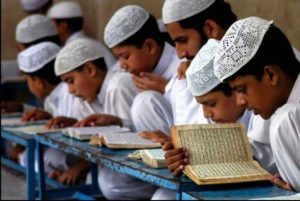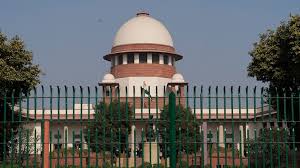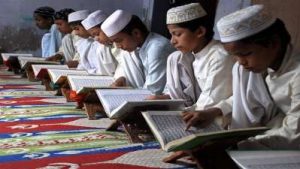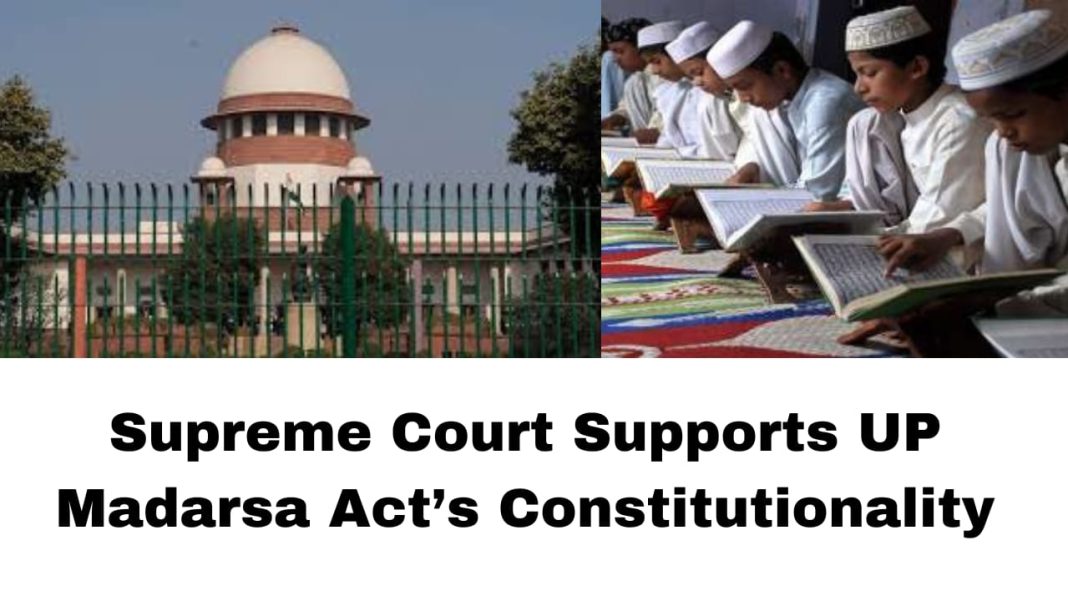Digital News Guru:
The Supreme Court of India recently upheld the constitutional validity of the Uttar Pradesh Madarsa Education Act, 2004, overturning a March 2024 Allahabad High Court verdict that had previously deemed the Act unconstitutional. This decision affects the educational framework for Islamic institutions in Uttar Pradesh, which had faced scrutiny over perceived conflicts with India’s secular values. The Supreme Court’s ruling is significant in the ongoing conversation about the balance between religious freedom and secular education within India’s diverse educational landscape.
Background of the UP Madarsa Education Act
The Uttar Pradesh Madarsa Education Act, enacted in 2004, was designed to regulate the education system within state-recognized madarsas, which are institutions that provide Islamic education alongside mainstream subjects. Under this Act, the Uttar Pradesh Board of Madarsa Education was established to monitor and standardize the curriculum, ensuring that subjects like Arabic, Persian, and Islamic studies are included alongside subjects from the broader state curriculum, such as mathematics, science, and social studies.

However, in March 2024, the Allahabad High Court ruled that the Act violated the secular principles of the Indian Constitution, arguing that public educational frameworks should not exclusively cater to specific religious groups. The High Court’s ruling suggested that students in these institutions would be better served if incorporated into the mainstream educational system, a move that was met with mixed reactions from educators, religious leaders, and policymakers.
The Supreme Court’s Rationale for Overruling the Allahabad High Court
The Supreme Court’s decision to reverse the Allahabad High Court ruling was based on multiple factors that the justices outlined as essential to understanding the constitutionality of the Madarsa Act. Chief Justice D.Y. Chandrachud, along with Justices J.B. Pardiwala and Manoj Misra, examined the nature of the Act and determined that it serves primarily as a regulatory mechanism rather than one that mandates or promotes any religious teachings over others. This view aligns with the Indian Constitution, which allows for the protection of cultural and religious practices as long as they do not infringe on the fundamental secular nature of the state.
The Court noted that the Act does not compel students in madarsas to pursue religious studies; instead, it provides a structure for these institutions to include both religious and secular subjects in their curricula. The ruling stressed that India’s pluralistic society includes citizens of many faiths and beliefs, and that madarsas serve a role in preserving cultural and religious knowledge within this framework. Therefore, the Act was deemed a valid exercise of the state’s legislative powers over educational institutions.

Implications for Religious and Cultural Education
One of the core arguments raised by the Supreme Court was that religious education has a place within a secular society as long as it coexists alongside a structured, standardized education. The Court emphasized that secularism in India does not entail a complete separation of religion from public life, as is seen in some other countries, but rather a respect for all religions without preferential treatment for any one faith.
The Allahabad High Court’s original ruling to incorporate madarsa students into the state education system was based on a concern for inclusivity and uniformity in education. However, this mandate, if enacted, would have posed challenges to students and educators within the madarsa system, many of whom argued that doing so would erase valuable aspects of their cultural and religious identities. Furthermore, the integration of such a large number of students—nearly 1.7 million, according to estimates—into the mainstream system would strain resources and potentially impact the quality of education for all students in the state.
Challenges and Criticisms
The Supreme Court’s decision, while received positively by many in the madarsa community, has not been without its detractors. Critics of the ruling argue that the state should prioritize secular education and that religious instruction could be considered supplementary or voluntary. Organizations like the National Commission for Protection of Child Rights (NCPCR) have raised concerns that some madarsa students may not be receiving a comprehensive education, which could limit their future prospects and opportunities. The NCPCR has argued that all students in India should have access to quality, secular education as a fundamental right, and has called for stricter oversight to ensure that religious institutions meet academic standards across the board.
On the other hand, supporters of the Supreme Court ruling assert that the diversity of education systems in India, including madarsa education, reflects the country’s multicultural identity. They argue that secularism, as interpreted in the Indian context, permits religious education to exist within a framework that respects all beliefs equally. This view, they claim, is fundamental to protecting minority rights and preserving cultural heritage, which are essential aspects of India’s secular and democratic identity.

Future Implications for Educational Policy
The Supreme Court’s ruling on the UP Madarsa Education Act may influence future legislative efforts around religious education across other states. Similar laws exist in various parts of the country, and many states have long been debating how best to balance religious studies with state-mandated education standards. This decision sets a precedent affirming that regulatory frameworks can exist for religious educational institutions as long as they do not infringe on the secular nature of the state.
The decision also highlights the need for policymakers to work collaboratively with religious communities when developing educational policies that impact minority groups. By recognizing the cultural and religious significance of madarsas, the Court has opened a pathway for other minority educational institutions to seek similar recognition and protections. However, it also places the onus on these institutions to ensure that students are not deprived of a holistic education that meets national standards.
Conclusion
The Supreme Court’s affirmation of the Uttar Pradesh Madarsa Education Act’s constitutionality is a landmark decision in the context of Indian educational policy and secularism. It emphasizes that religious education, when regulated and balanced with secular subjects, can coexist within the broader national framework. By overturning the Allahabad High Court’s judgment, the Supreme Court has underscored India’s unique approach to secularism—one that respects and incorporates the diverse religious beliefs of its citizens.
This ruling also opens up broader discussions about how India’s educational system can balance secularism with respect for religious and cultural practices, setting the stage for potential reforms in how educational policies for minority communities are implemented across the country.
You May Also Read: MiG-29 Fighter Jet Crash Near Agra, Pilot Ejects Safely








